
Ending the time of waste
We are the last generation that can prevent irreparable damage to our planet, let's clean up, catch up and smarten up.
1 November 2019

Opinion
Should we use science fiction to plan a path towards our low-carbon future?
How we can create a more ambitious, more radical (and maybe even more optimistic) view of the low-carbon future.
6 May 2019

Opinion
Gene therapy
50 years after it was first proposed, gene therapy - the modification of DNA to treat disease - has gone from science fiction to clinical reality. However, as prices for gene therapies are released, widespread sticker-shock is raising questions about affordability and fair pricing.
20 July 2018

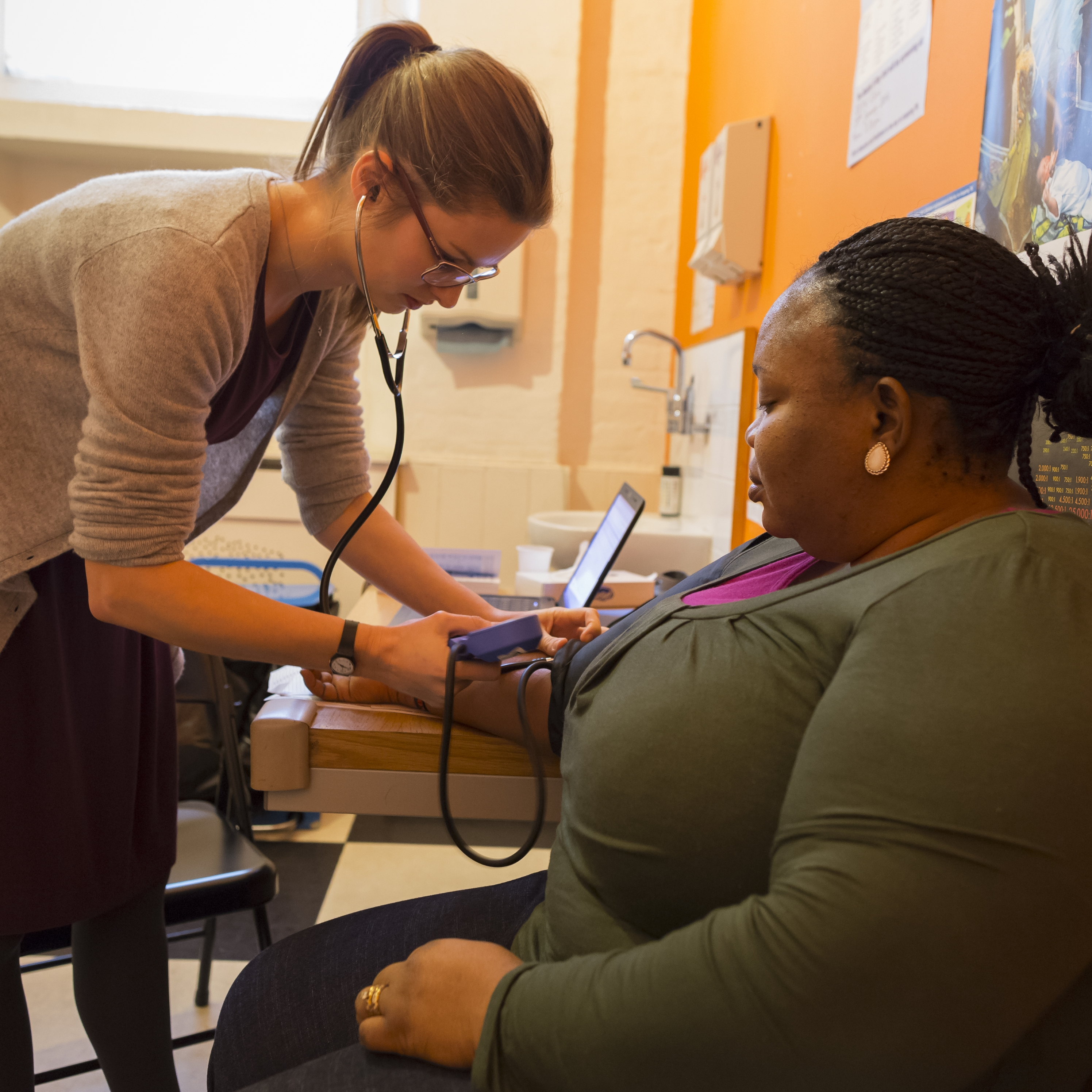
Moving the borders into healthcare
A political drive in the UK is leading to undermining of access to primary and emergency care for many vulnerable groups despite evidence of potential harm to individual and public health. Bringing little if any economic benefit, the policy to introduce charges for primary care and A&E for visitors and migrants is progressing at pace while critics of the policy are side-lined.
11 October 2016

In the age of terror, are medical ethics a casualty of war?
Since the attacks of September 11, 2001, physicians serving under the direction of United States defense and intelligence agencies have at times been directed to act in ways that explicitly violate established medical ethics. The question is, is it ever acceptable for national security interests to trump ethical obligations?
6 April 2016

The debt humanity owes the environment
The large extent of our debt with Nature is likely to have important repercussions on our health, including unforeseen impacts such as a rise in hypertension due to increased salinity of rivers and seas. Can synergies or 'co-benefits' arising from efforts to tackle climate change issues such as energy use and transportation also mitigate some of it's health effects?
22 September 2015

Medical Travel & Trade: Equitable Access or Economic Grab?
As countries race to dominate the medical tourism sector and attract the wealthiest patients from around world, what damage is being caused to the health of their own citizens?
30 June 2015

The Gathering Storm
A rights-based approach to protecting victims of climate-induced displacement is needed; one which recognises entitlement to assistance and protection, and leverages opportunities for safe and dignified migration.
15 May 2015
Medical Tourism in the Tropics
Countries such as Barbados are facing legal and ethical obstacles to develop effective regulatory mechanisms for the emerging medical tourism sector.
20 April 2015
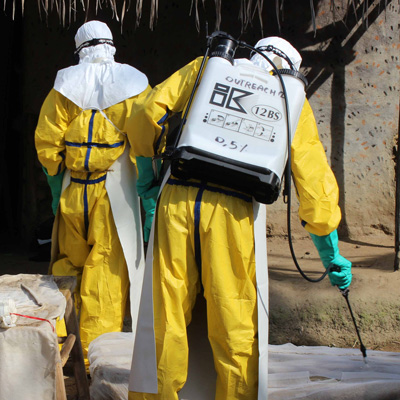
Ebola: 38 years, 25 outbreaks
While forming a key component of the recent Ebola response, much debate surrounds how clinical trials testing new experimental treatments for the disease should be designed.
26 March 2015

Research
Improving the Immunogenicity of Vaccines
For maternal infections such as group B streptococcus and early infant infections such as respiratory syncytial virus infection, there is now hope for the development of successful vaccines, some based on adjuvants which are designed to boost weak immune response.
1 June 2014
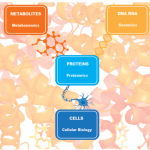
Metabonomics: The Future for Clinical Treatment?
Metabonomics, namely the observation of small molecules within a biological sample, has emerged as a new potential treatment due to the complexity of mainstream genetic and biomedical research.
1 October 2013
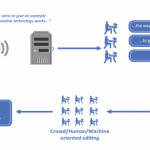
Assistive Technology and Audiovisual Translation
Online tools such as Audiovisual Translation (AVT) and Assistive Technology (AST) have the potential to aid the provision of university-level educational material for people with sensory impairments such as blindness and deafness.
1 October 2013

Biotech and Big Pharma
From improving the process of food production to keeping up with the demands of a rising population, to developing novel and sophisticated biological treatments for life-threatening diseases, biotech can and does impact multiple aspects of our life.
1 October 2013

Ageing Societies
Better co-ordinating care, improving the flow of patient information and ensuring that adequate funding mechanisms are in place are crucial if societies are to deal with the challenges posed by ageing societies.
1 May 2013

Research
The Ageing Heart
Research based at Imperial College in the area of Popeye domain containing aims to provide a novel insight into the ageing process and potentially provide new therapeutic opportunities to help the ageing heart.
1 May 2013

Cancer: A Global Issue
While remains a widespread view that cancer only affects those in wealthier regions of the world and the elderly, at least half of cancers are diagnosed today in developing countries and these carry the greatest burden of premature mortality from cancer.
1 May 2013

Research
The Quest for a Better Bionic Hand
The hand is a crucial part of the body, and the desire to replace it following an amputation – with trauma or cancer being the main underlying causes – is a natural one. Existing bionic hands are already good substitutes for the natural limb yet a number of limitations prevail.
1 May 2013

Research
Alzheimer’s Disease
Stress caused in a particular cell organelle, the endoplasmic reticulum (ER), plays a role in Alzheimer's Disease brain cells, and has emerged as a potential therapeutic target.
1 May 2013

Opinion
Sexual Harassment in the Workplace
The past half century has seen leaps in women’s working rights, yet statistics show that sexual harassment is still a pervasive threat in the workplace.
1 May 2013

The BRICS
Since their emergence as a group, many commentators have championed the BRICS as good news for global health. However, this article seeks to explore whether it is right to assume that their economic accolades readily extend to the sphere of Global Health.
1 January 2013

How to Plan a Successful Biopharma Product Rollout
Effectively launching a new biopharma product, however, has never been more challenging. In addition to a litany of regulatory issues, companies face high stakeholder expectations, numerous market-access hurdles, and stiff competition, all of which are made more formidable by the business realities of the industry.
1 October 2012

Spending the Money Wisely
All the heroic ambitions for improving global health must confront the prosaic reality of finding the necessary financial resources.
1 October 2012

Multi Drug-Resistant Tuberculosis
This article examines why drug resistant TB has come into existence, how it can be categorized, what treatment options are available and how the global health community plans to combat this growing threat.
1 October 2012

On the Benefits of Competition in Healthcare
Governments faced with rising costs and growing demand are constantly searching for methods of delivering better healthcare. Reforms which promote competition are currently very much in vogue, yet while the political appeal is simple critics argue that the features of healthcare make the use of competition inappropriate.
1 October 2012

Antibiotics in Decline
The majority of antibiotic use is in the community, however the impact of antibiotic resistance is felt most acutely when treating patients in healthcare settings.
1 October 2012
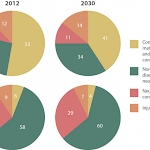
Global Mental Health
For global health to truly deliver the overarching aim of health equality for all, it must overcome the artificial dualism separating mental from physical illness
1 May 2012
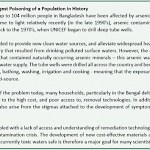
Arsenic: Mass Poisoning in the 21st Century
Access to clean water is a fundamental human need. We must find low-cost ways of analysing toxic contaminants in the field, and develop cheap and effective remediation methods.
1 May 2012






